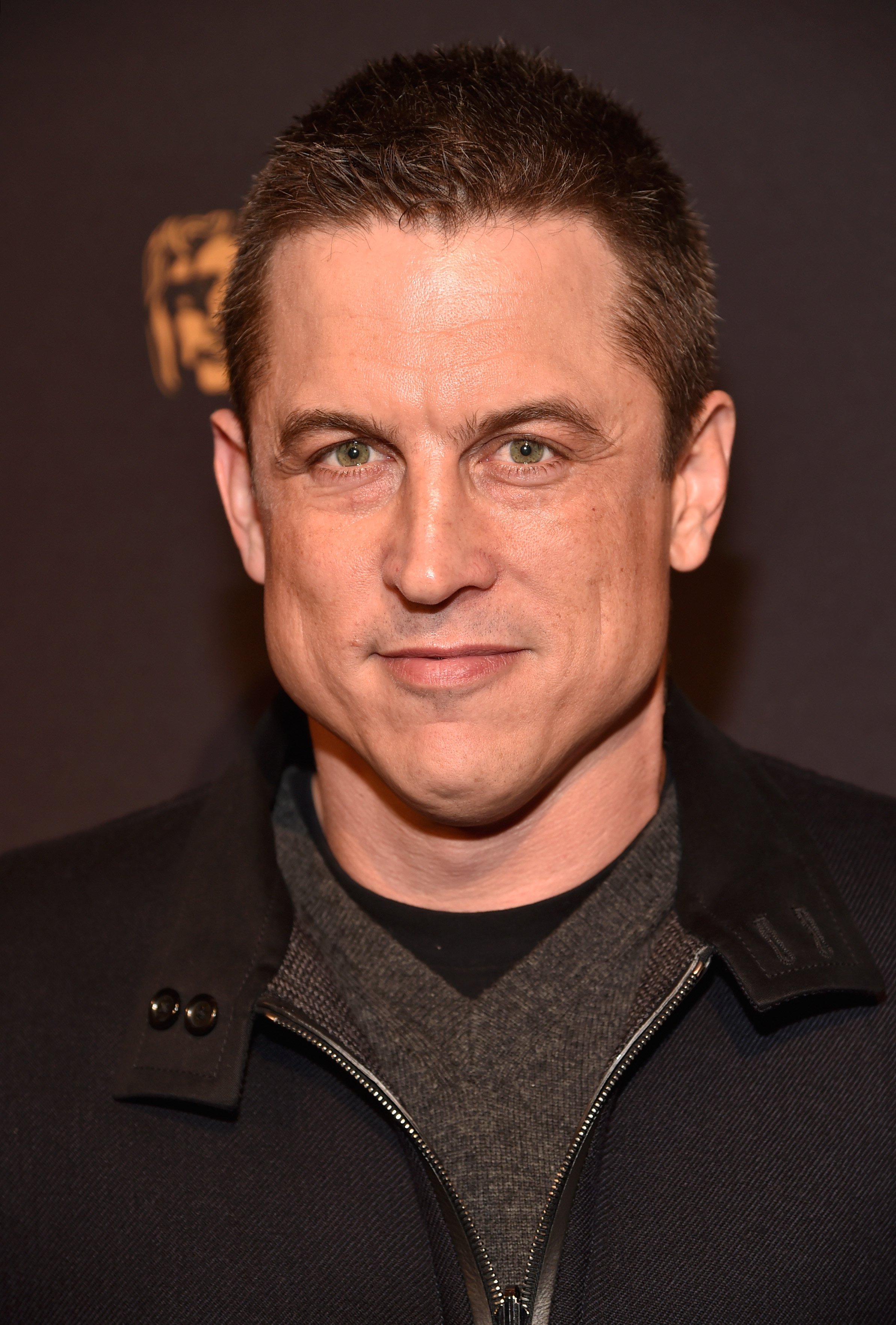
American Sniper may be quickly stealing the title of the most politically controversial film this Oscar season, but screenwriter Jason Hall maintains he just penned a portrait of a beleaguered soldier — not a political statement. The biopic of Chris Kyle, who the Navy credits with the most kills in American military history, broke January records with a whopping $90.2 million at the box office over the weekend in spite of — or perhaps because of — critics who say the film glorifies a murderer, not to mention a war America never had any business fighting in the first place.
“People see the movie poster, and it’s got a guy and the American flag, and they know Clint Eastwood — the Dirty Harry guy and the Republican convention guy — directed it,” says screenwriter Jason Hall. “So they think it’s some jingoistic thing. I would challenge that in a big way. Chris was a man who believed in something and who therefore was useful to a government that needed him to go to war. It cost him his physical health, his mental health and almost cost him his family — but Chris probably would have paid the price over and over again if he’d been asked, which is both patriotic and totally tragic.”
MORE Who Was American Sniper Chris Kyle?
Actor Seth Rogen and director Michael Moore stoked the controversy over the weekend when they each tweeted what were widely interpreted as criticisms of the film. Rogen wrote: “‘American Sniper’ kind of reminds me of the movie that’s showing in the third act of ‘Inglourious Basterds,’” referencing the fictional Nazi propaganda film about a German sniper featured in Quentin Tarantino’s movie. Meanwhile, Moore tweeted that he had always been taught snipers were “cowards.” Both Rogen and Moore have since backpedaled on these comments: Rogen explained in another tweet that he “actually liked” the movie, while Moore penned a lengthy Facebook post praising Bradley Cooper’s performance as Kyle.
But other detractors have pointed to Chris Kyle’s controversial 2013 book, also titled American Sniper, in which Kyle unabashedly referred to enemies in Iraq as “damn savages” and shared statements like, “I don’t shoot people with Korans. I’d like to, but I don’t.” Several journalists (most notably New Yorker writer Nicholas Schmindle) have tried and failed to corroborate some of the tales in the memoir, including one in which Kyle shot and killed two armed men trying to steal his truck in Texas and another in which Kyle set up as a sniper atop the Superdome after Hurricane Katrina and shot 30 looters. After the book was published, Minnesota governor Jesse Ventura sued Kyle for claiming that he had punched out the politician for disparaging Navy SEALs. Ventura won $1.8 million in damages last summer.
“That book — you hear the voice of the warrior, not a civilian, and I think it turned people here in Hollywood off,” says Hall, who believes that Kyle was pressured into hiding his softer side in the memoir for the sake of sales. “Everybody in Hollywood was like, ‘We don’t want to see an Iraq war movie. Everyone was against it, and we kind of lost, didn’t we?'”
But Hall pitched a portrait of a man who had been deeply changed by war and was struggling to spiritually return to the person he had once been — a pitch that eventually convinced Bradley Cooper to buy the rights. Hall had met Chris “The Legend” Kyle before the book’s publication in 2010, and — after years of talking with Kyle — decided that the soldier had been more affected by his high body count than he let on to the public.
MORE Bradley Cooper Ate Every 55 Minutes to Bulk Up for American Sniper
But finding the softer side of the “old school cowboy” who didn’t like chatting about his feelings took persistence. Kyle ignored Hall’s daily phone calls, responding with text messages instead, and answered questions like, “What was it like to kill a man?” with one or two words. Kyle didn’t care about political correctness and said so in a Facebook post. He gave Craft International, a defense contractor he founded and presided over until his death, this motto: “Despite what your momma told you, violence does solve problems.” That’s the Kyle audiences see in the war part of the film, the Kyle that critics object to.
“It felt like he was still at war, even though he was standing in Texas,” Hall says.
It wasn’t until after Kyle’s death that Hall learned more about what he calls the SEAL’s softer side. Kyle dedicated his post-war life to helping his fellow veterans. He started a business that installed exercise equipment inside veterans’ homes and even began spending time in small groups with vets who needed to talk about their problems. He would often take these men out to shooting ranges where they could bond and talk to them about their struggles with finding jobs, re-acclimating to family life and PTSD. It was on one of these trips that Kyle was killed — by a marine who he was trying to help.
That made the stakes for Hall even higher. Hall recalls a moment just after Kyle’s funeral, where he was sitting around a pool deck in Texas with about 15 SEALs. At that point, Hall had been working on his screenplay for three years; he had turned in his first draft just one day before Kyle was killed.
Hall doesn’t drink, but the rest of the men on the deck did. “One guy picks me out and is like, ‘You’re not even drinking, dude. Why are you even here? Get the f— out of here.'” When Hall told them he just wanted to tell Kyle’s story, the SEAL yelled at him again to go back to his room.
“I knew these guys were rough housers, and I was like, ‘Look man, I’m not going anywhere, but if you want, we can wrestle.’ So he threw down his beer and came charging at me.” Hall had some experience from wrestling as a kid and was ready for the SEAL. “I took him down. He clipped his head. It was nasty. I was bleeding — he was bleeding. I let him up, and he wanted to go again. We went four times. And at the end of it, I think he threw up. He gave me a big hug, and was like, ‘You’re a f—ing badass. I’ll tell you whatever you want to know.”
And they did. “When anyone challenges this story or thinks that I didn’t try to put the whole story out there, I’m like, ‘You know what? I bled for this thing,'” Hall says.
MORE Watch the Heart-Pounding Trailer for Clint Eastwood’s American Sniper
After the funeral, Hall and Kyle’s wife Taya spent over 200 hours on the phone together. Taya told him of their courtship, their marital struggles, and how it took years for Kyle to finally reconnect emotionally with her and the kids. “The first draft of the script that I had was a war movie,” says Hall. “Then I talked to Taya, and I saw what was at stake for him emotionally. I saw similar themes to The Odyssey. The second draft turned into this story about what it costs these men to go to war and how they find their way back.”
See the U.S. Military's Last Days of Combat in Afghanistan
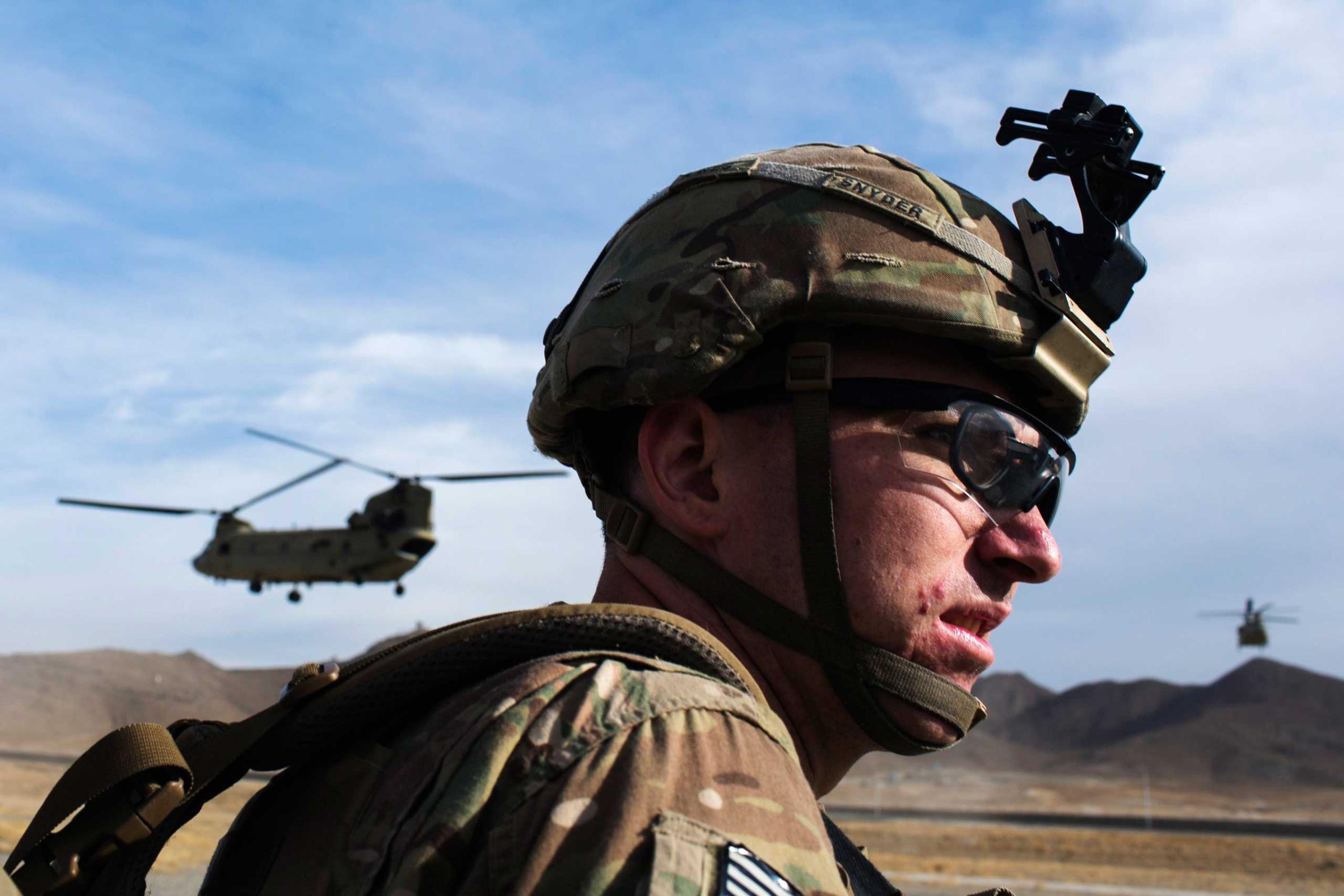
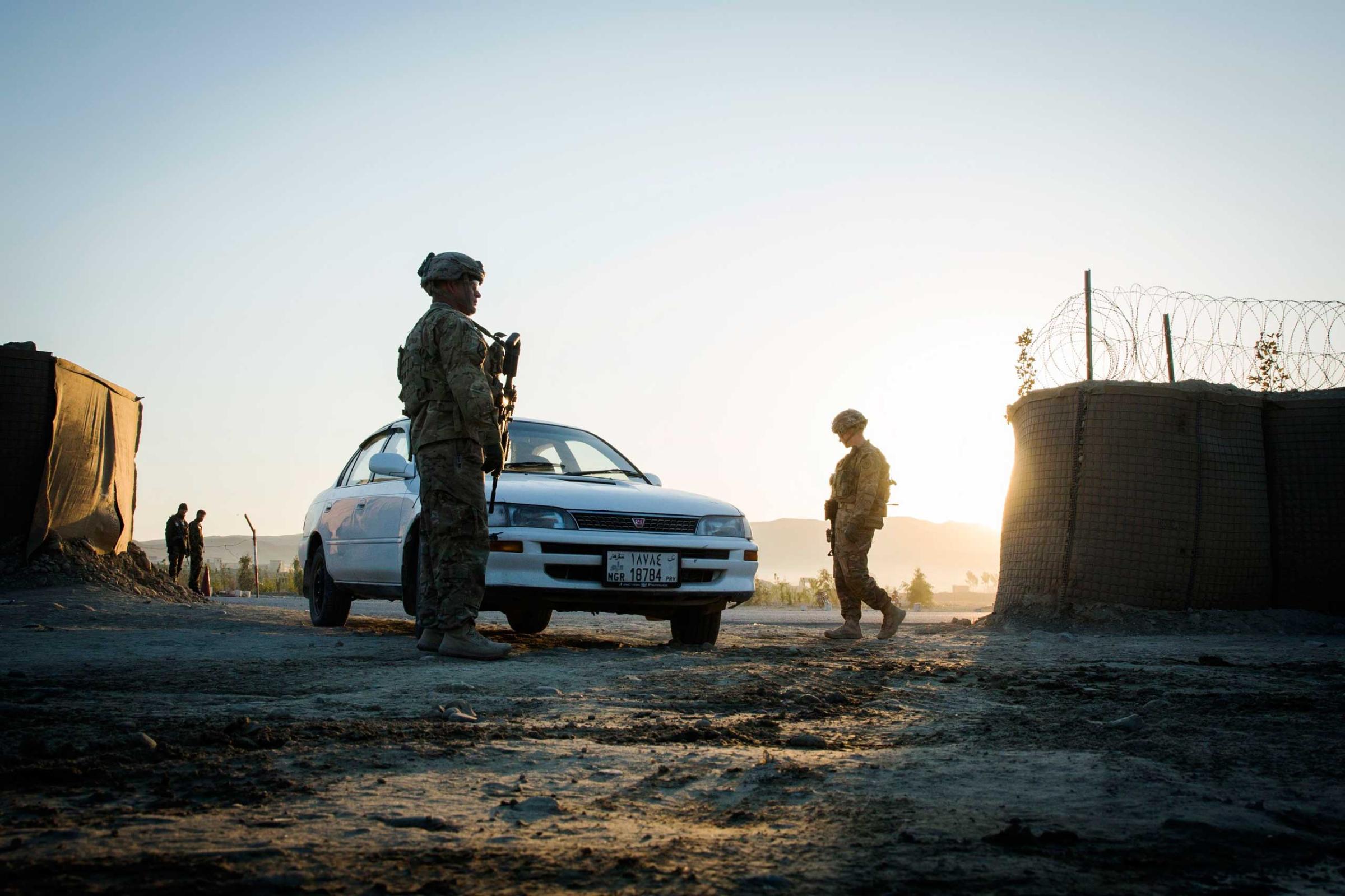
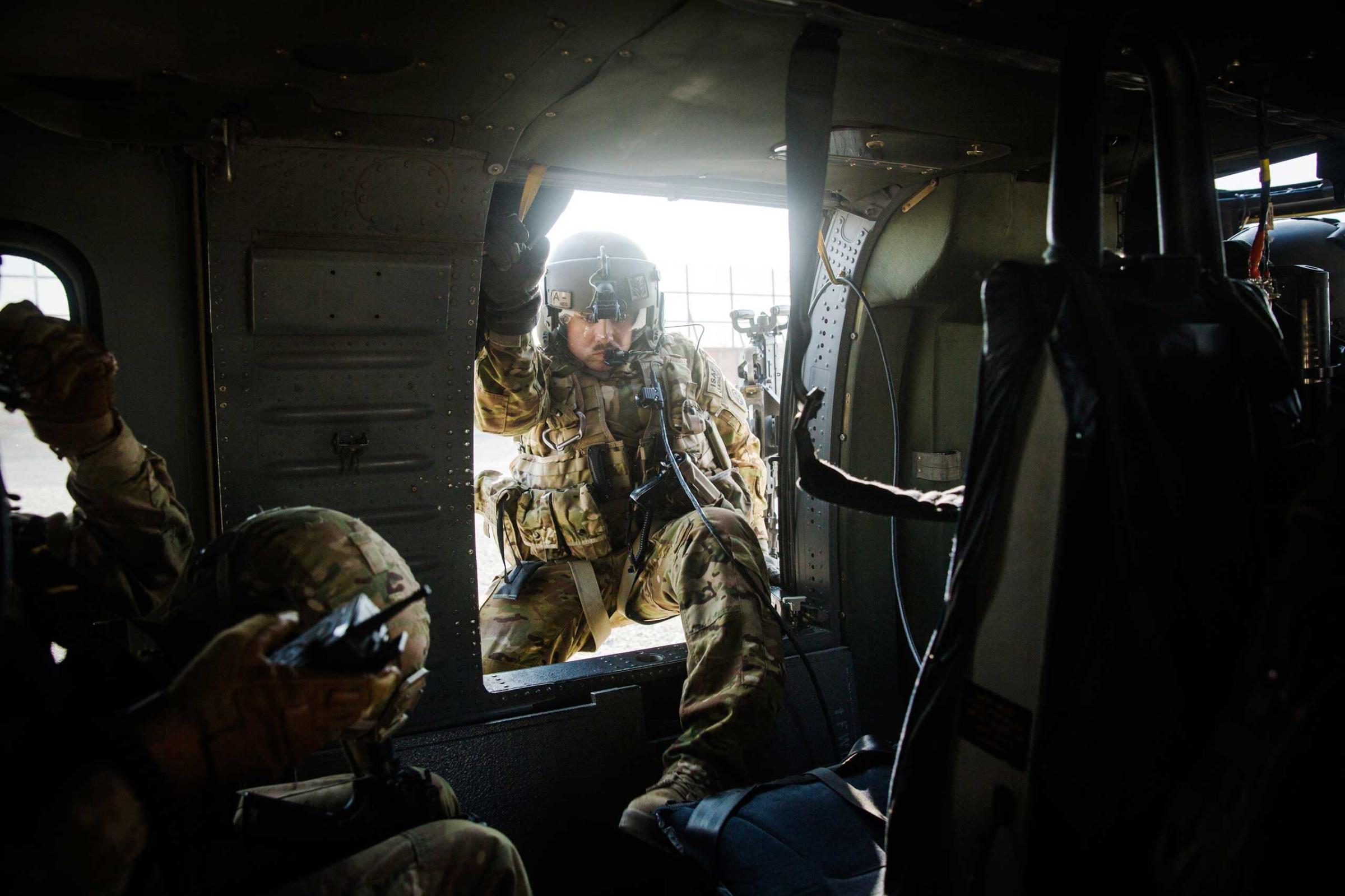
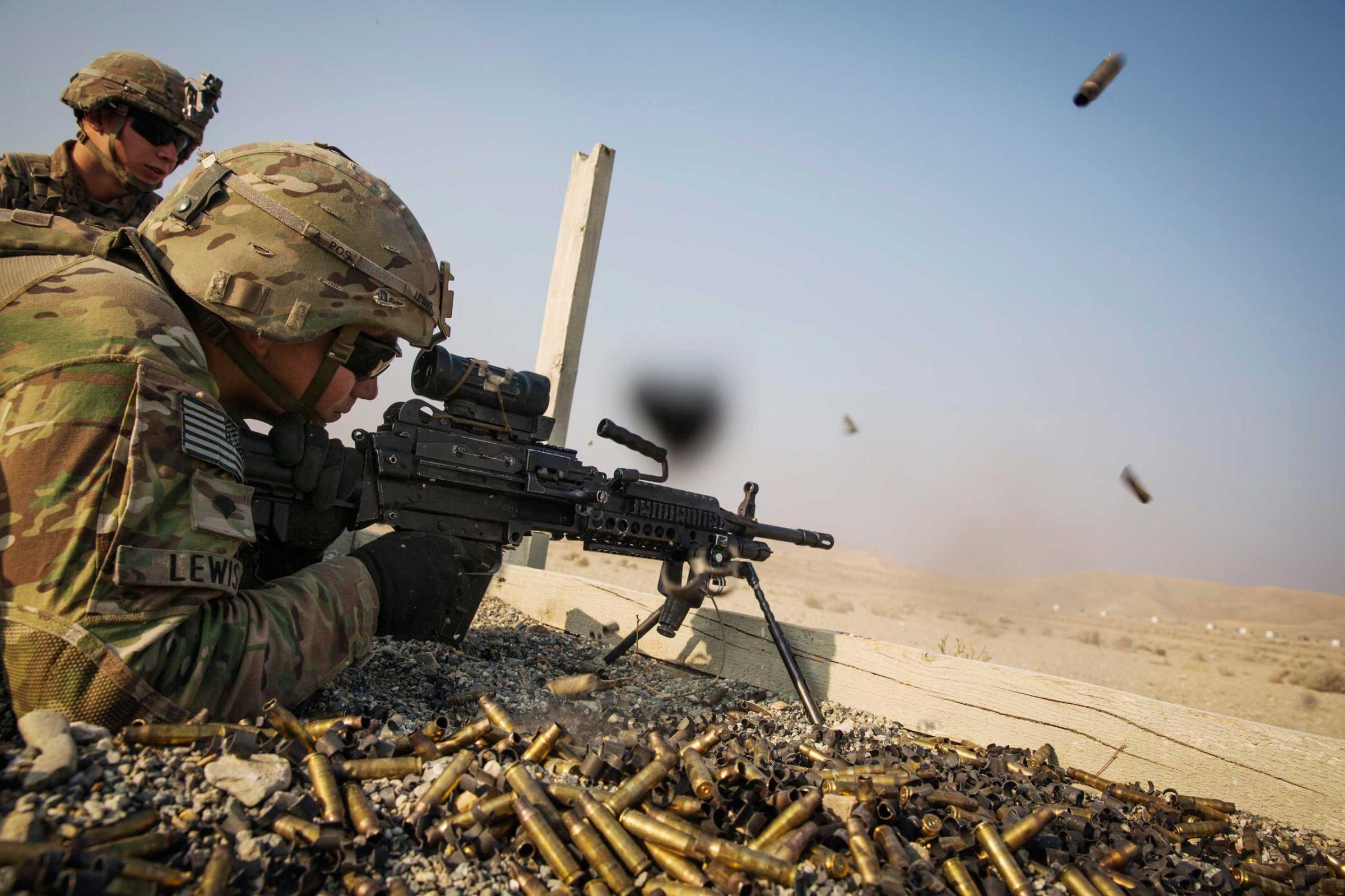
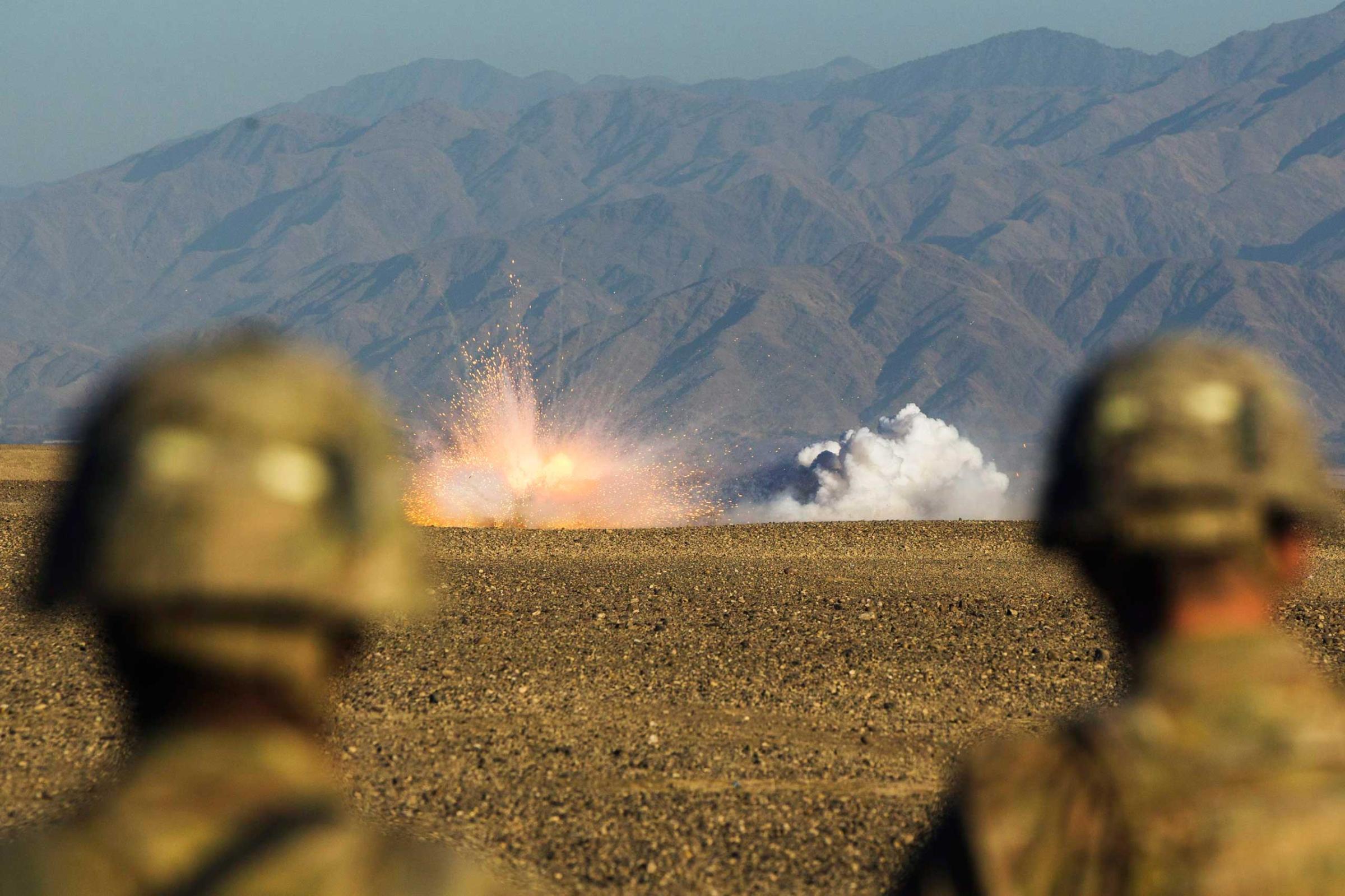
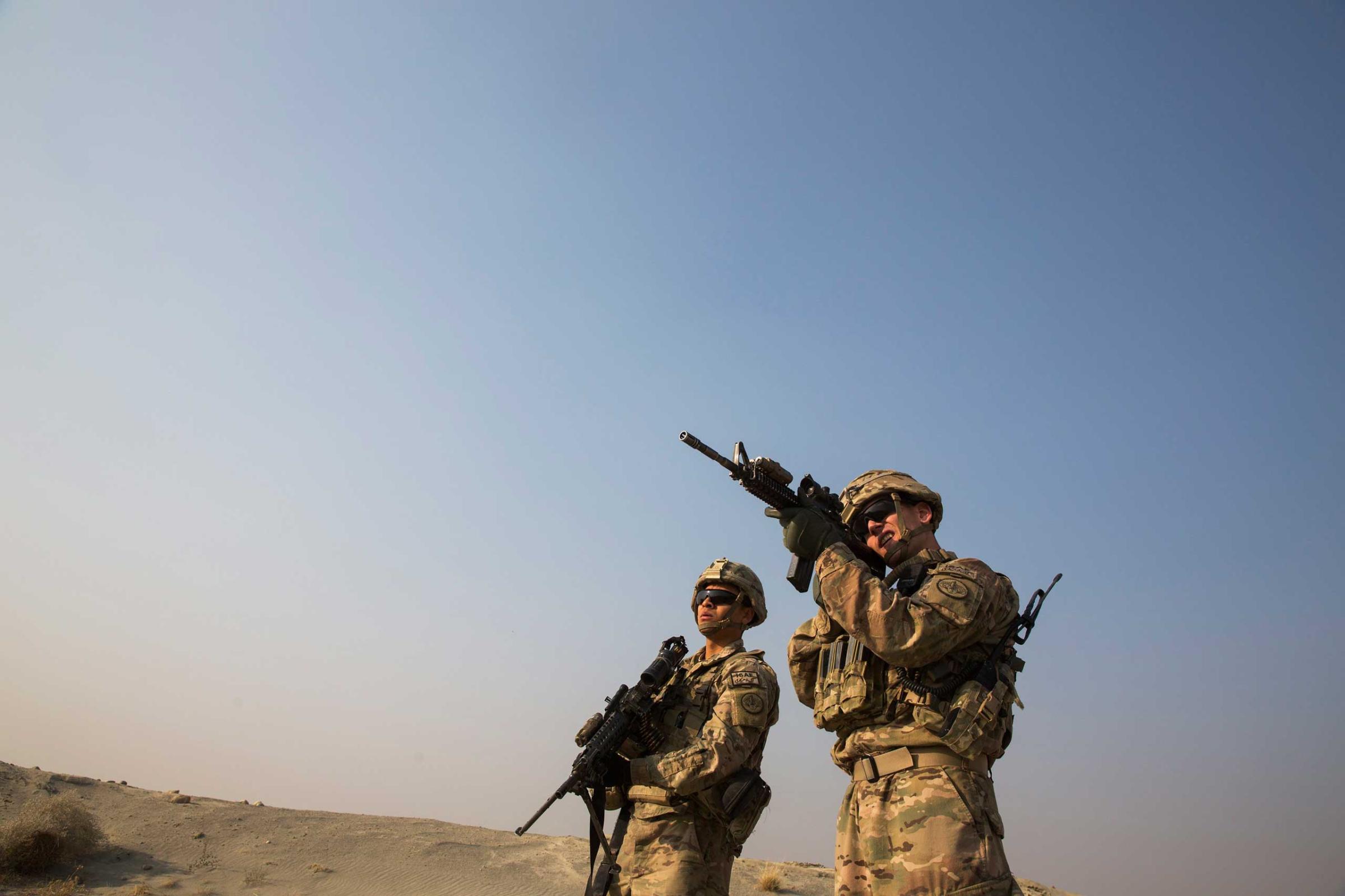
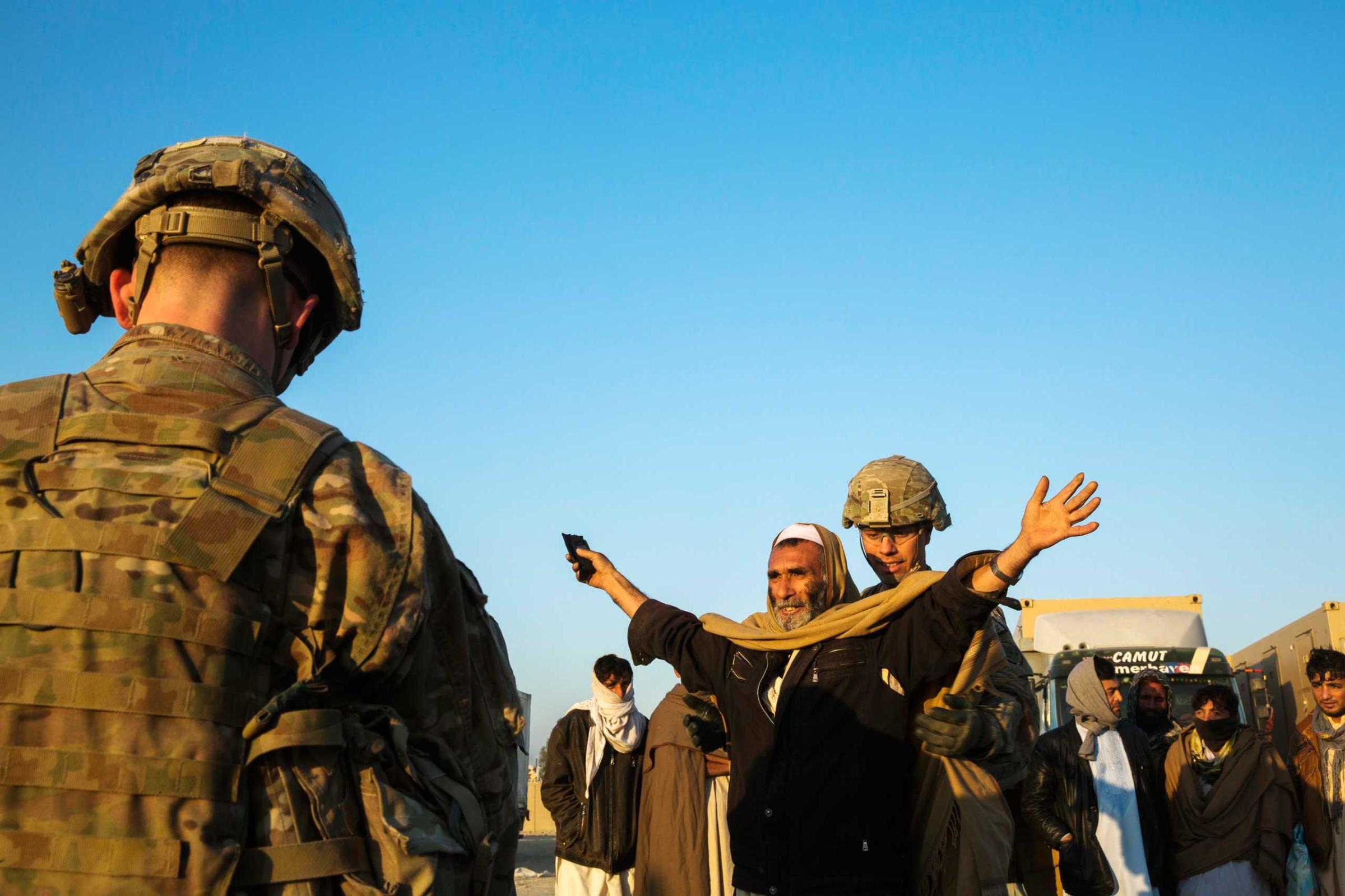
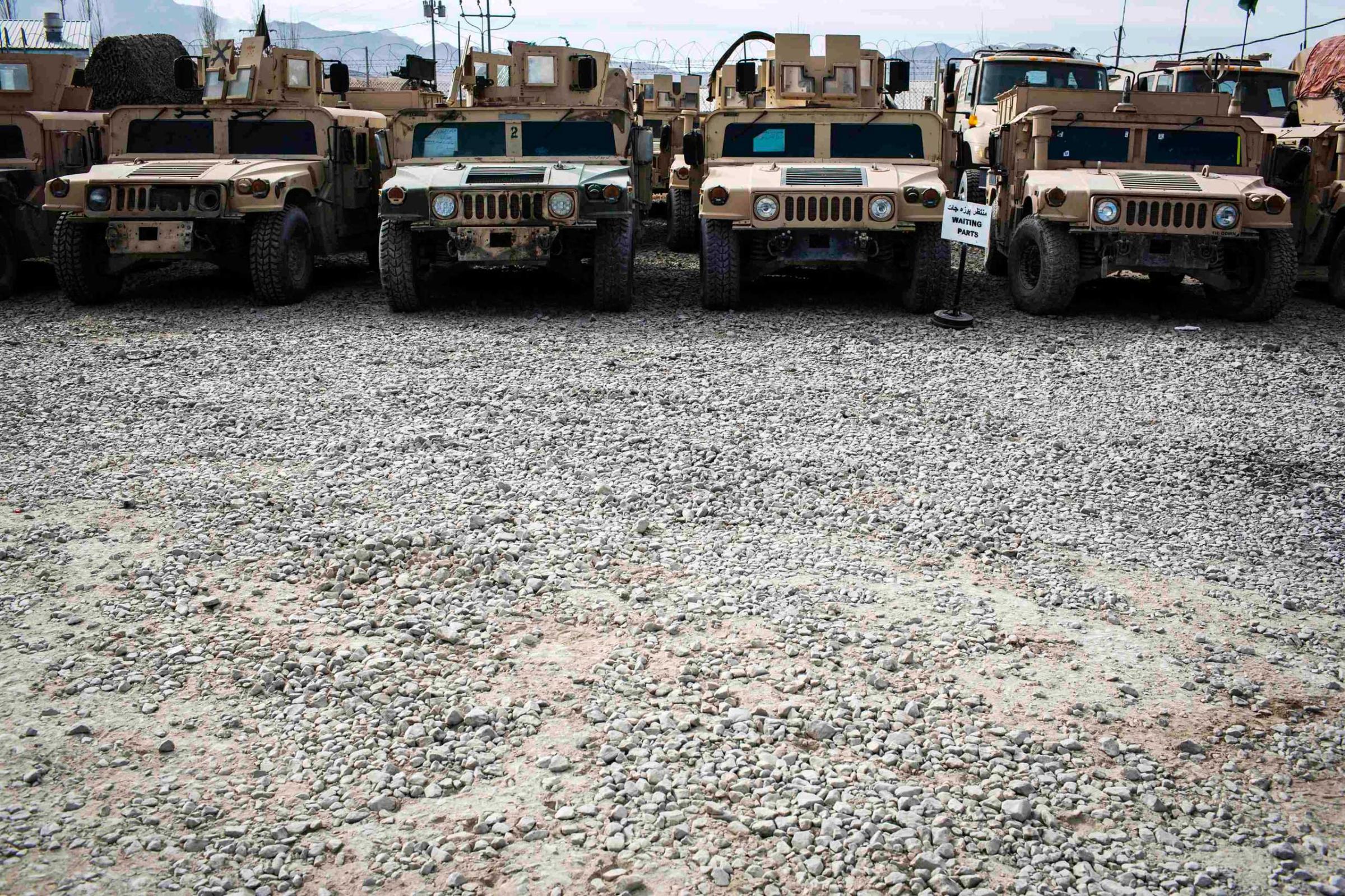
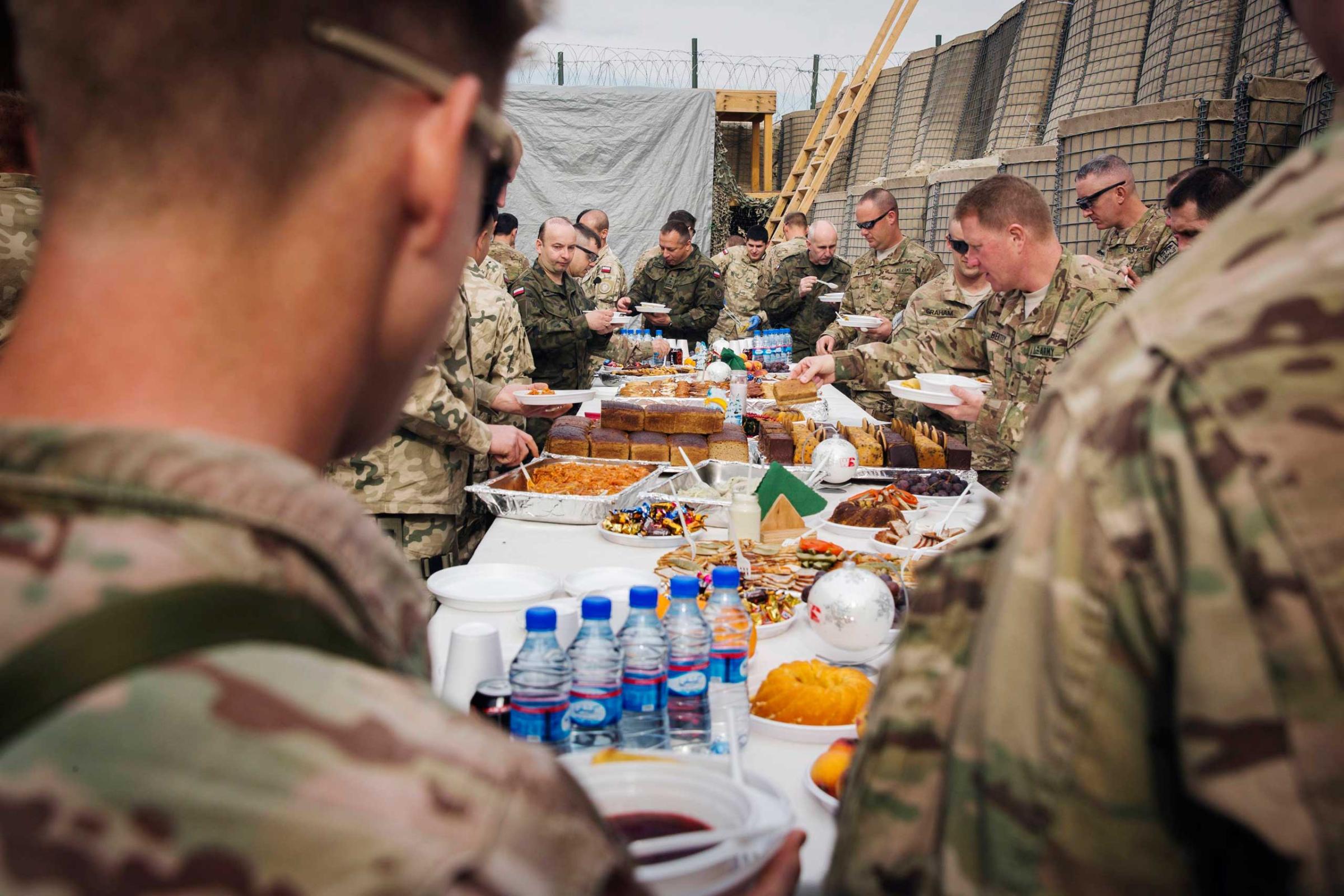


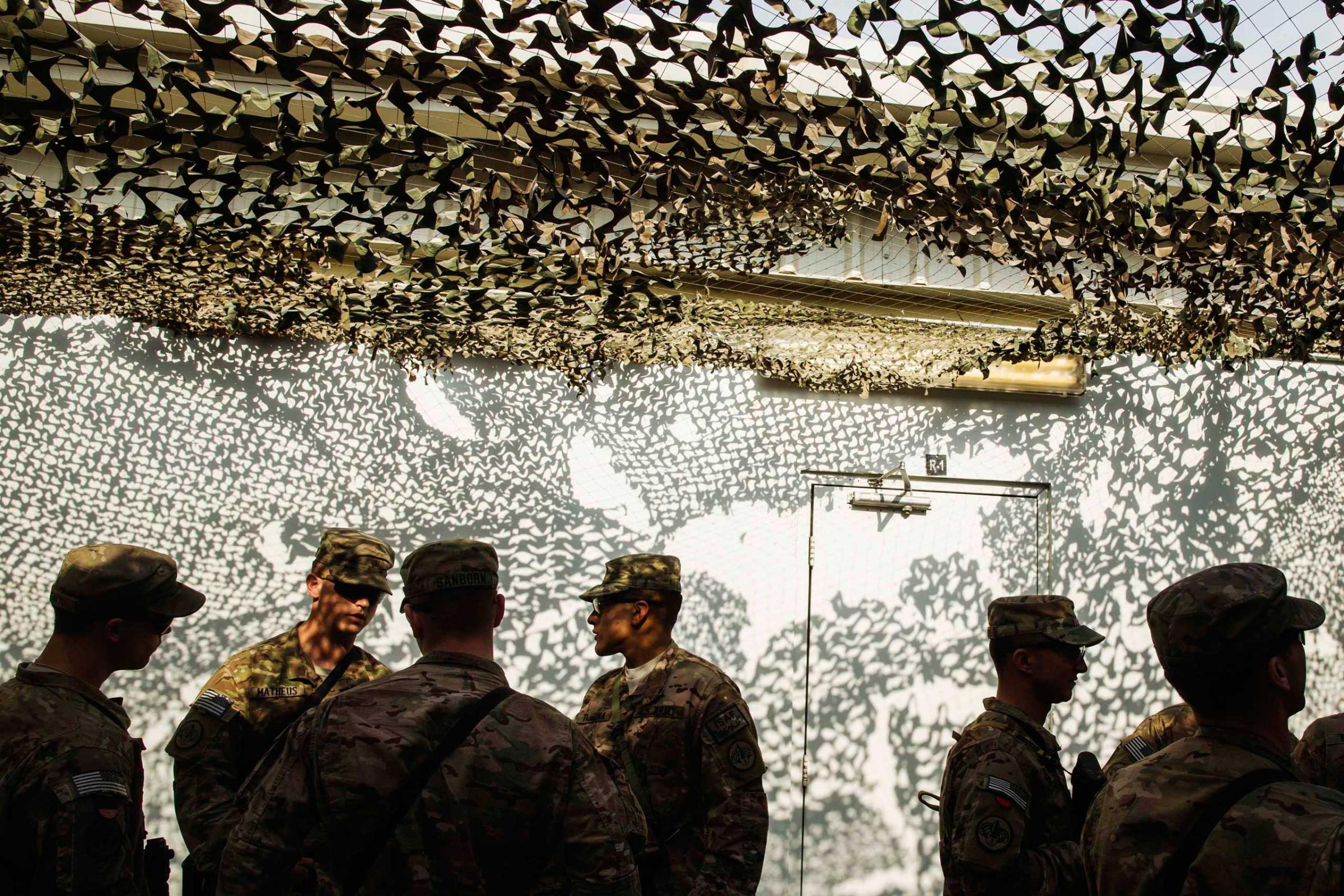
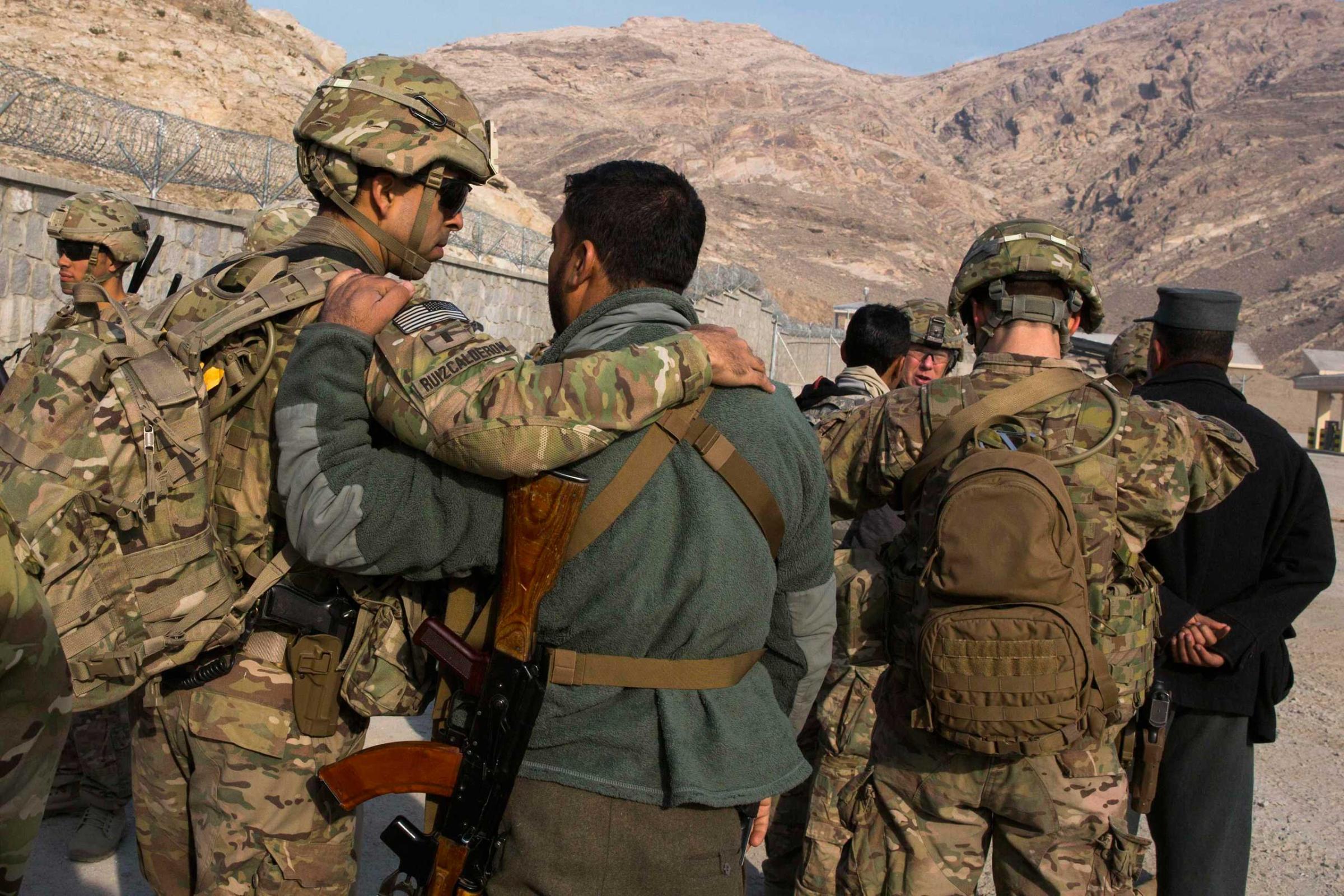
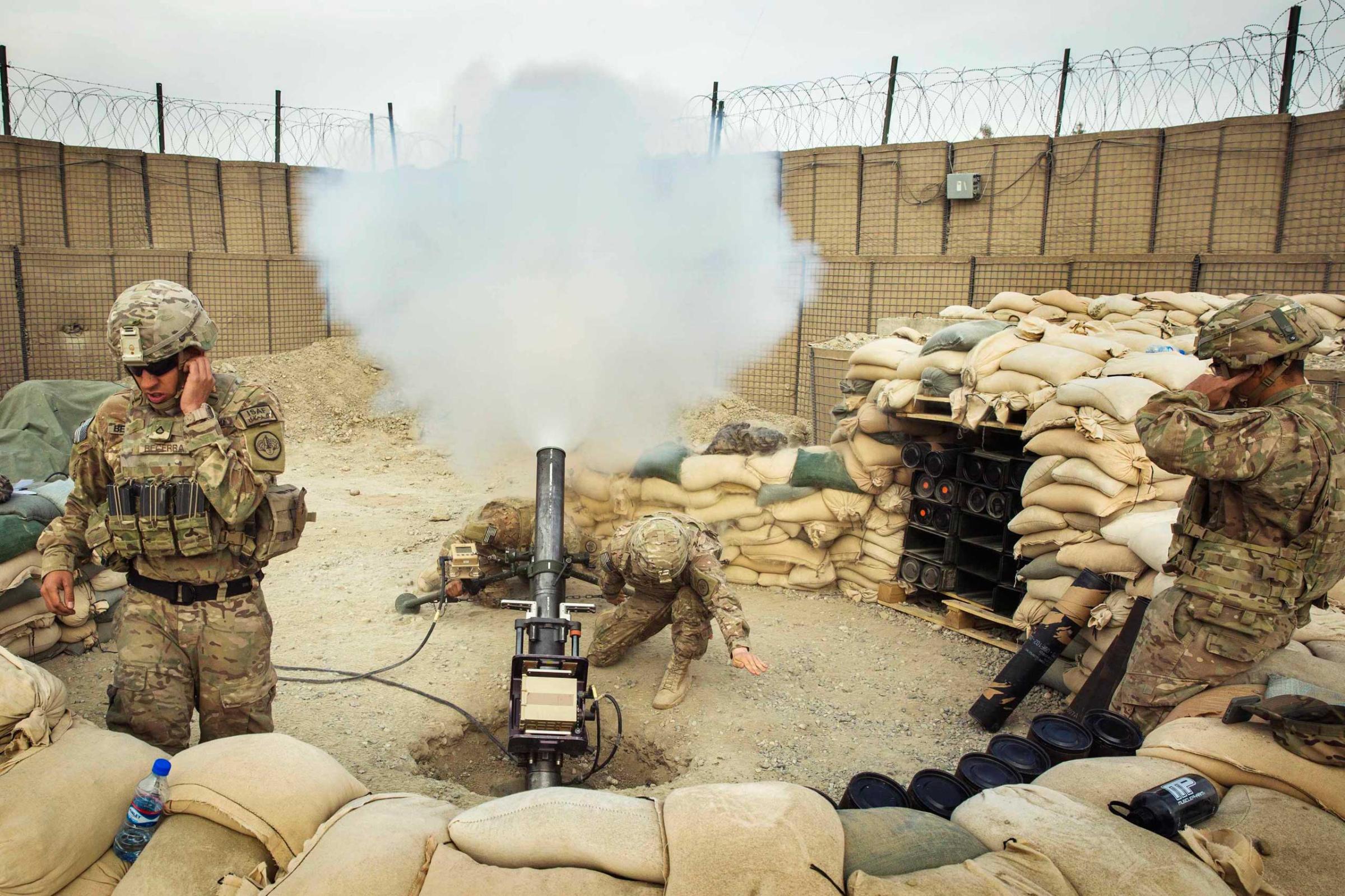
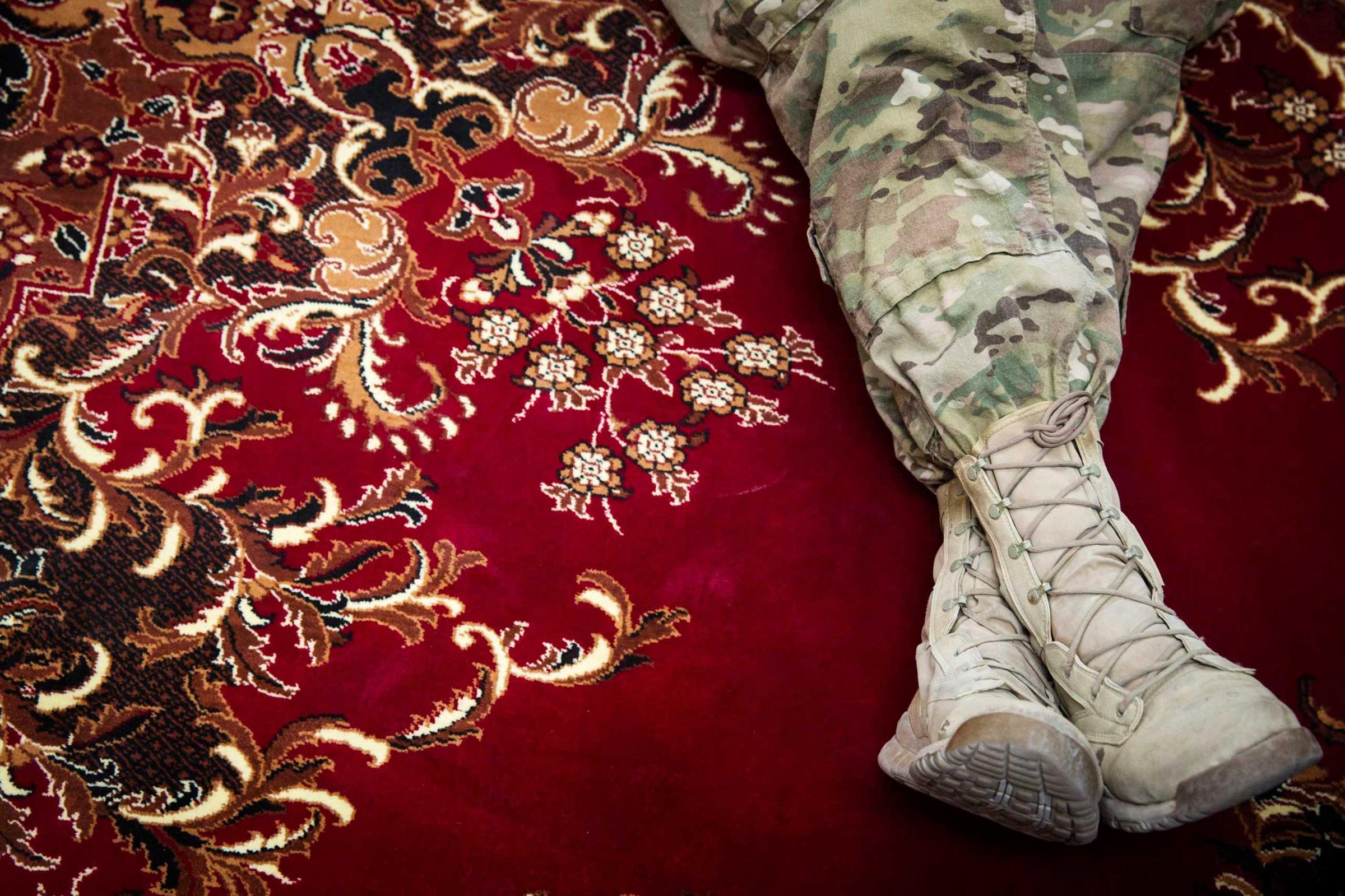
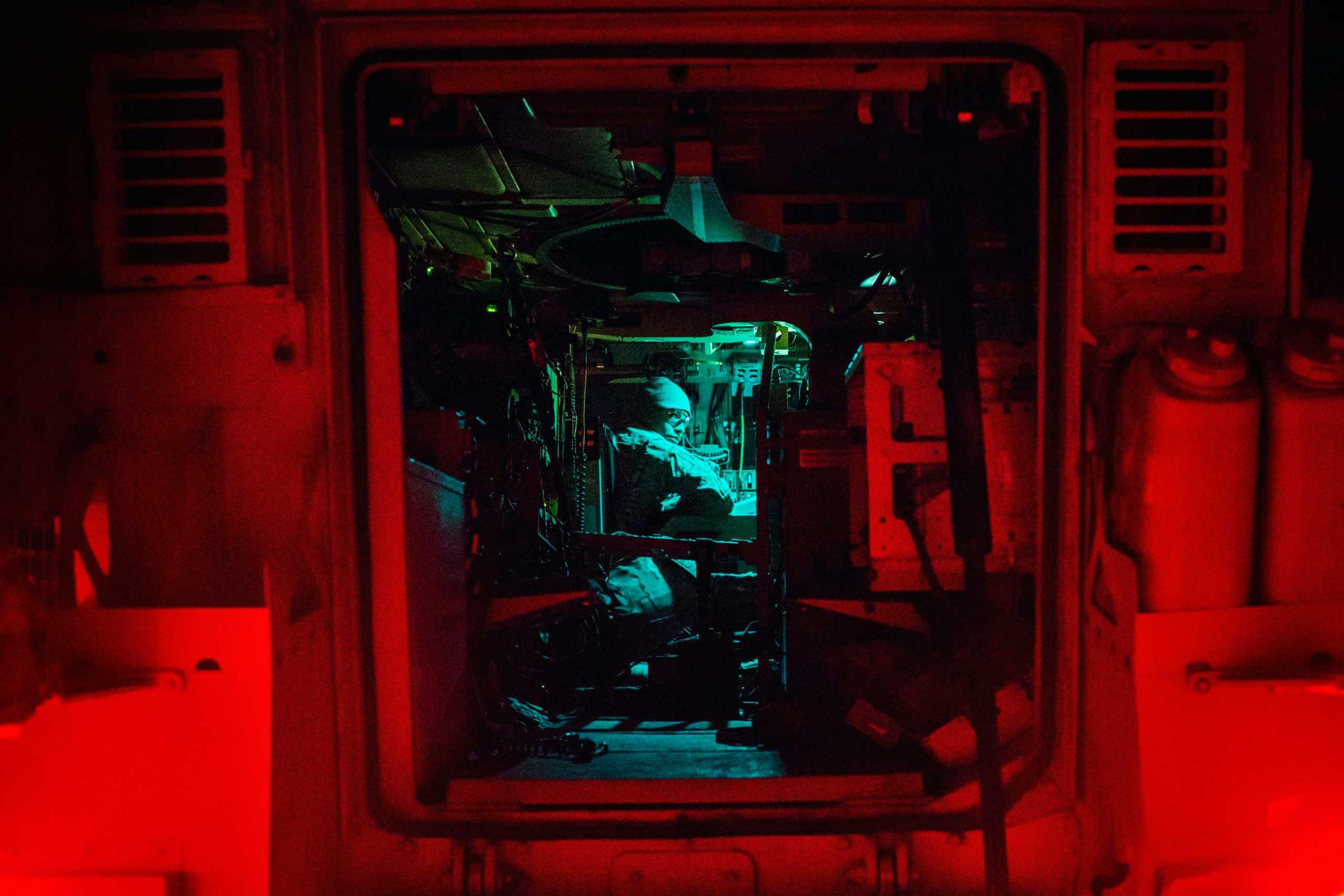
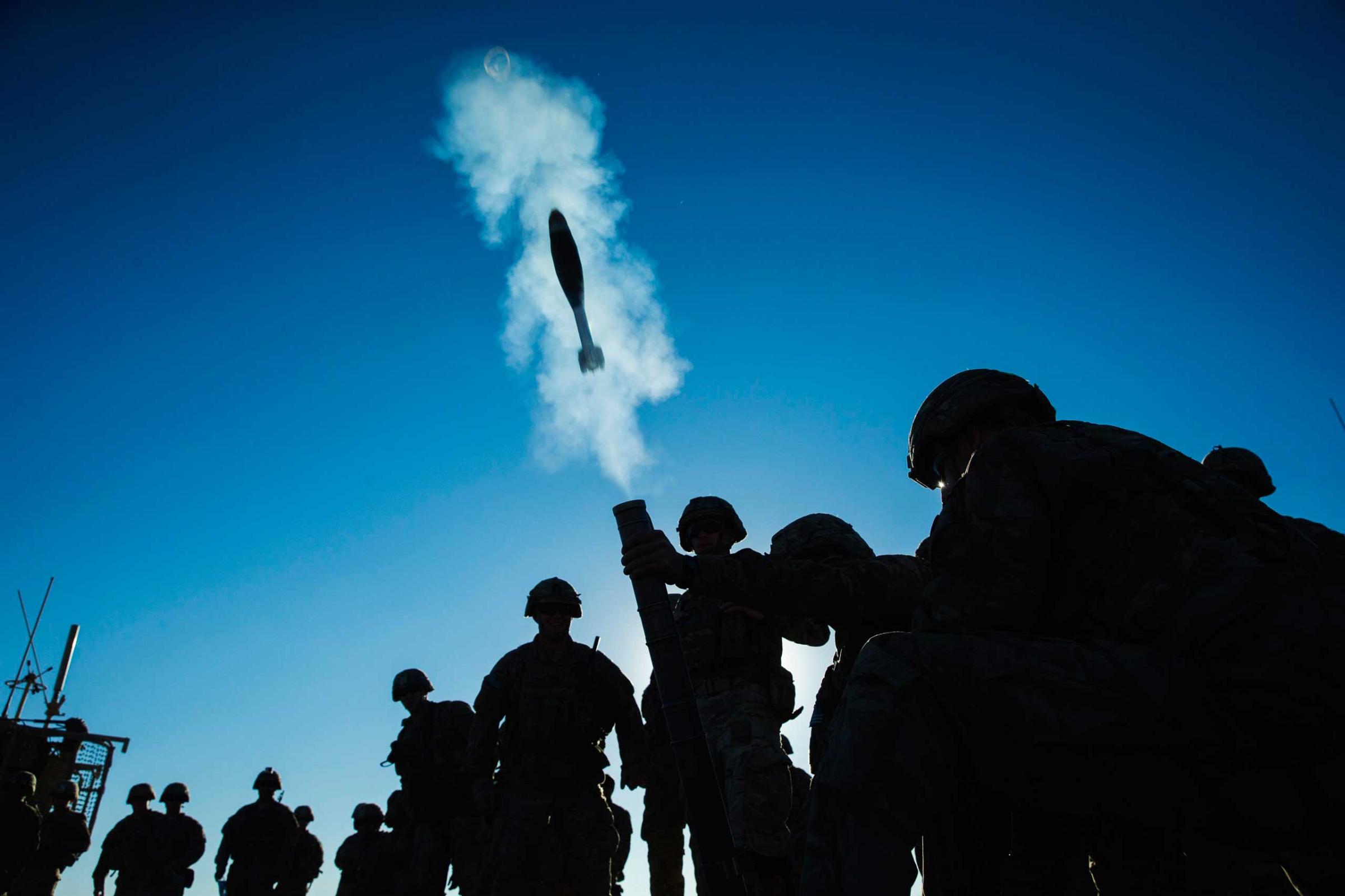
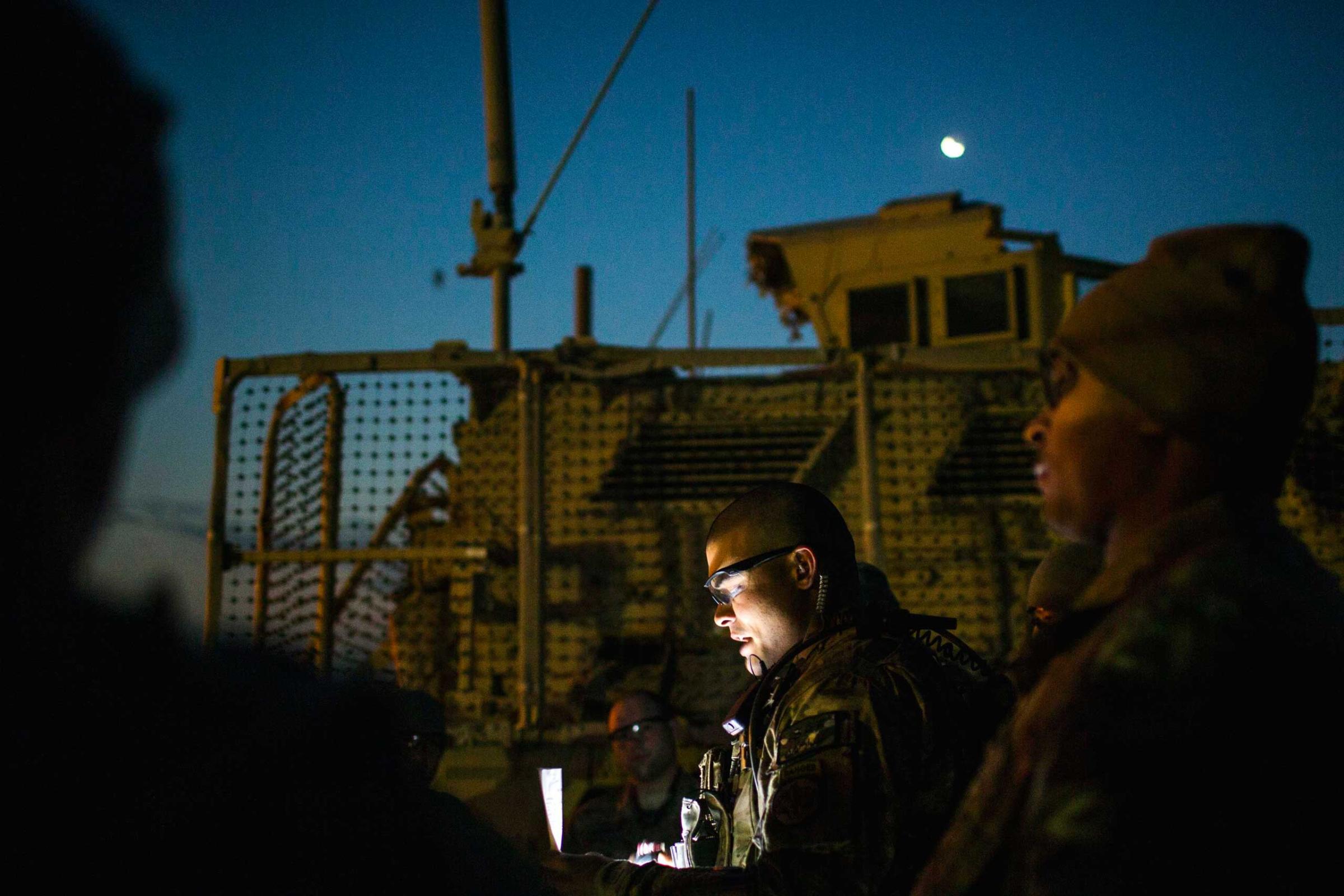
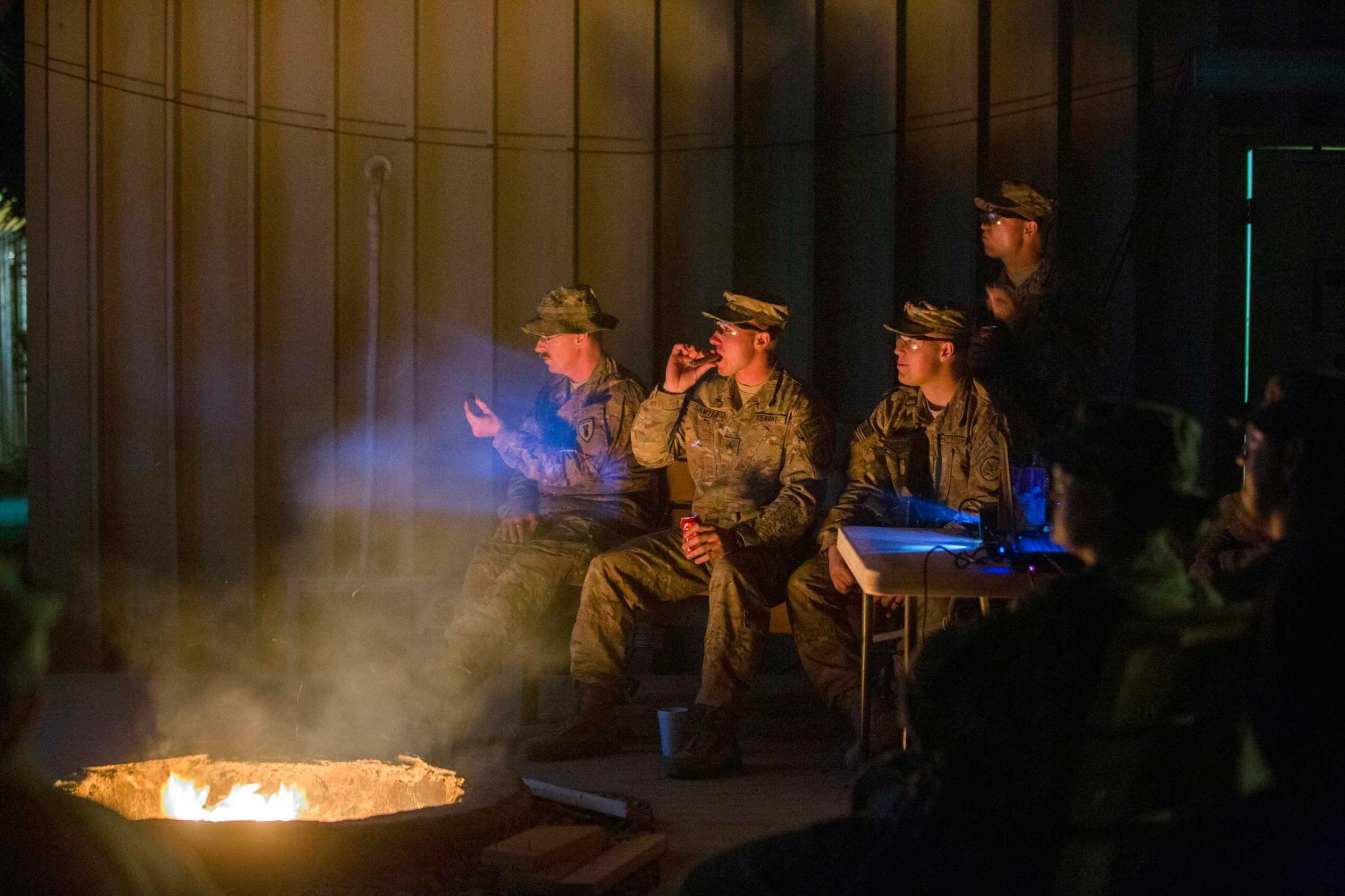
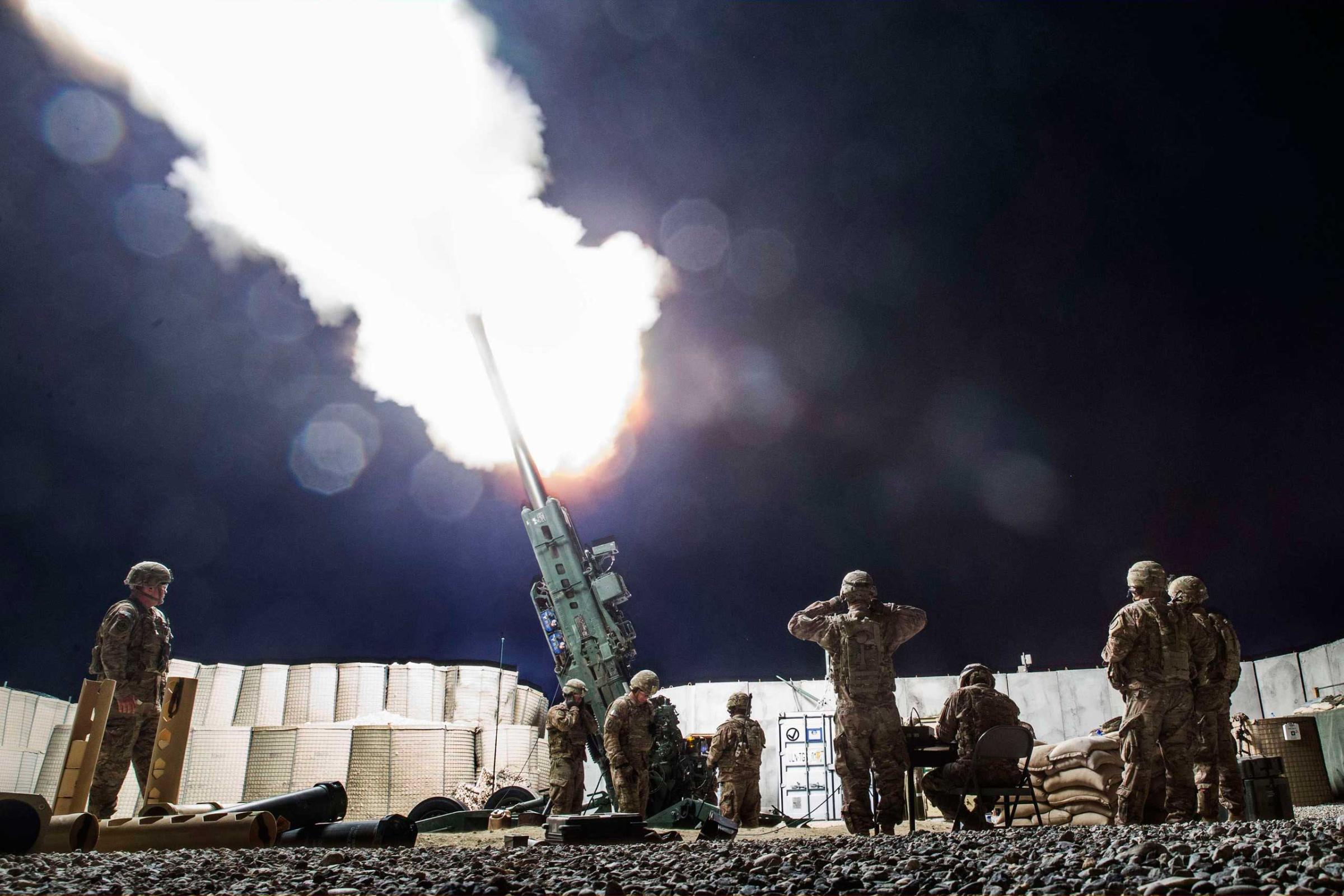
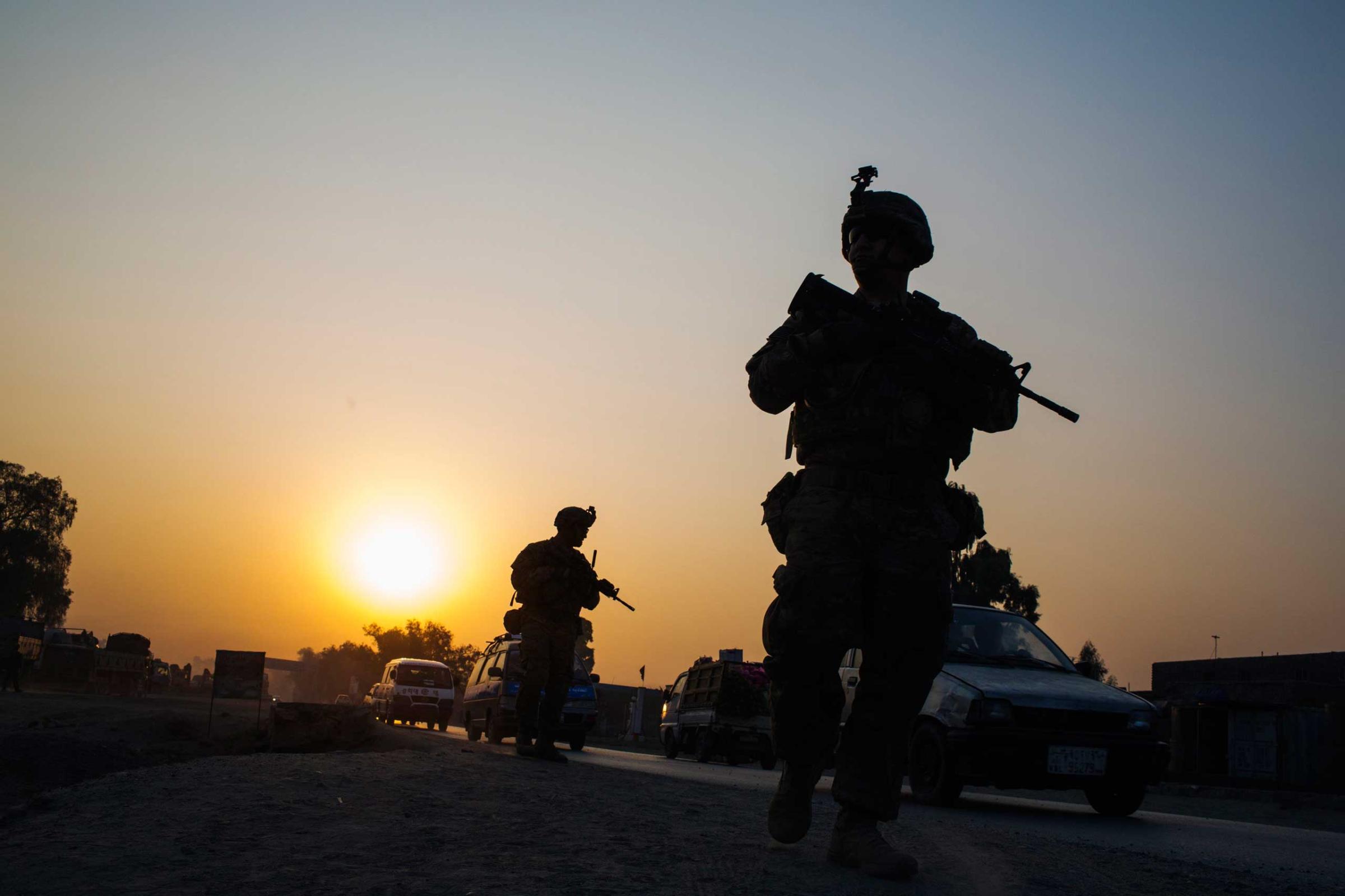
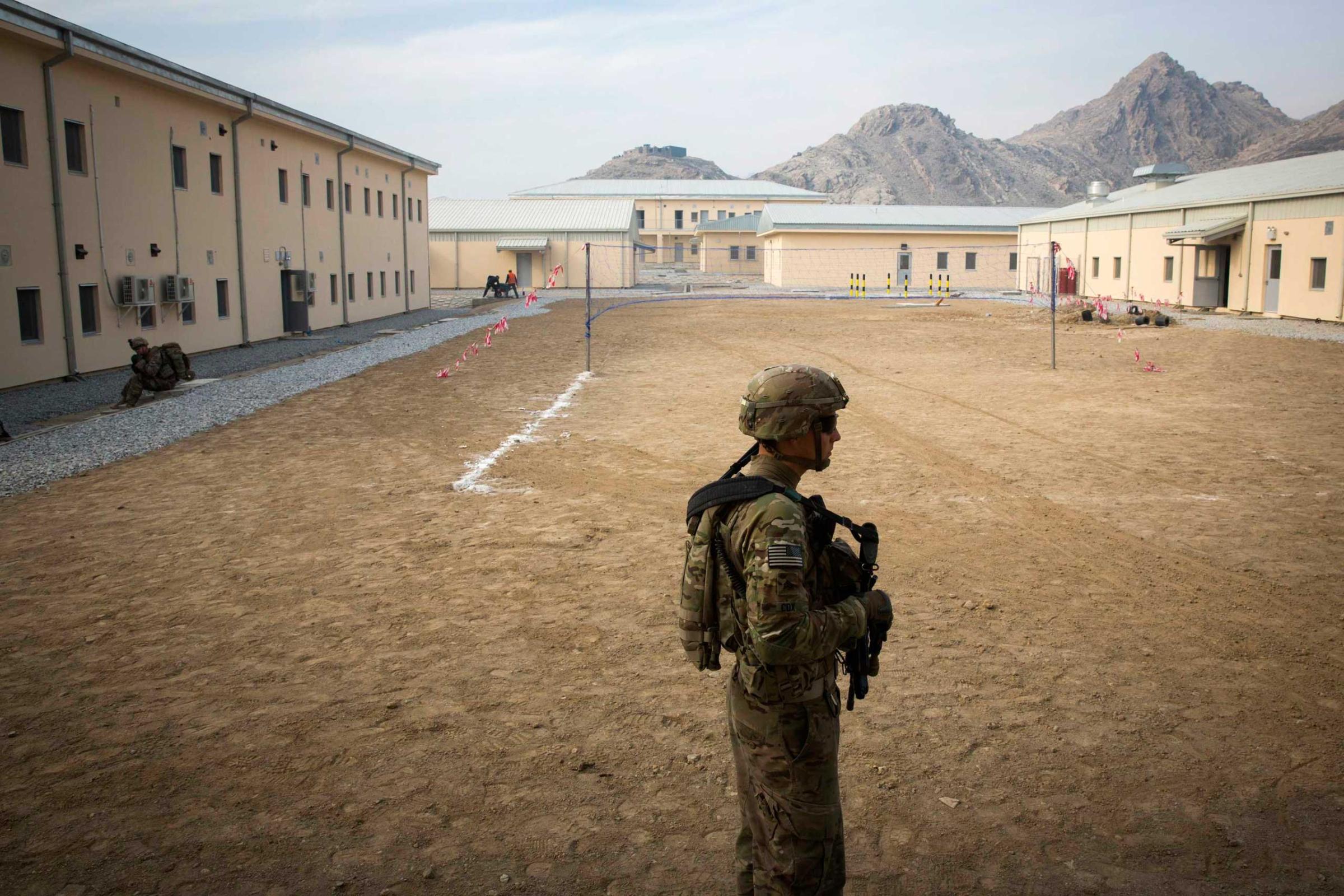
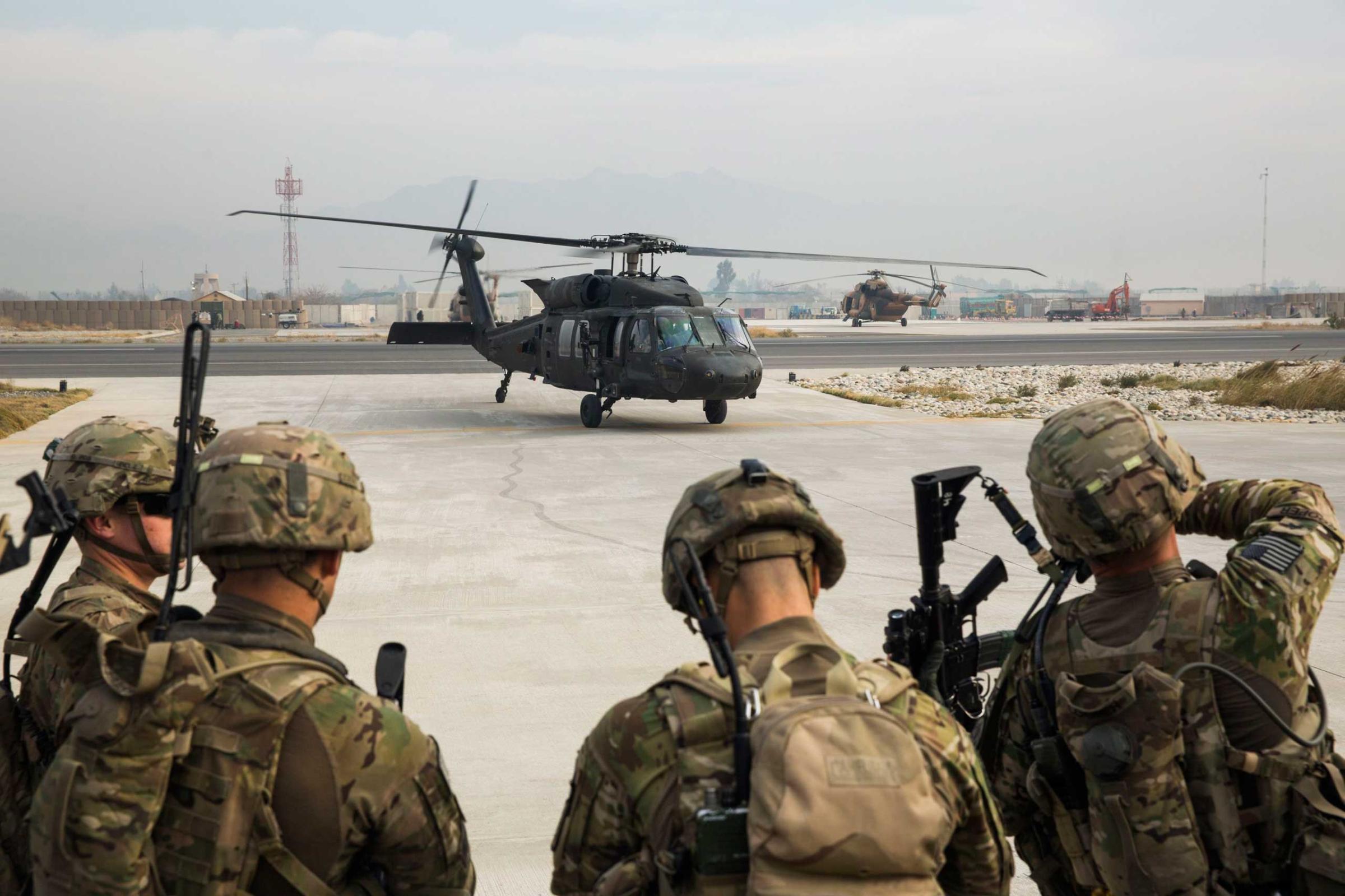
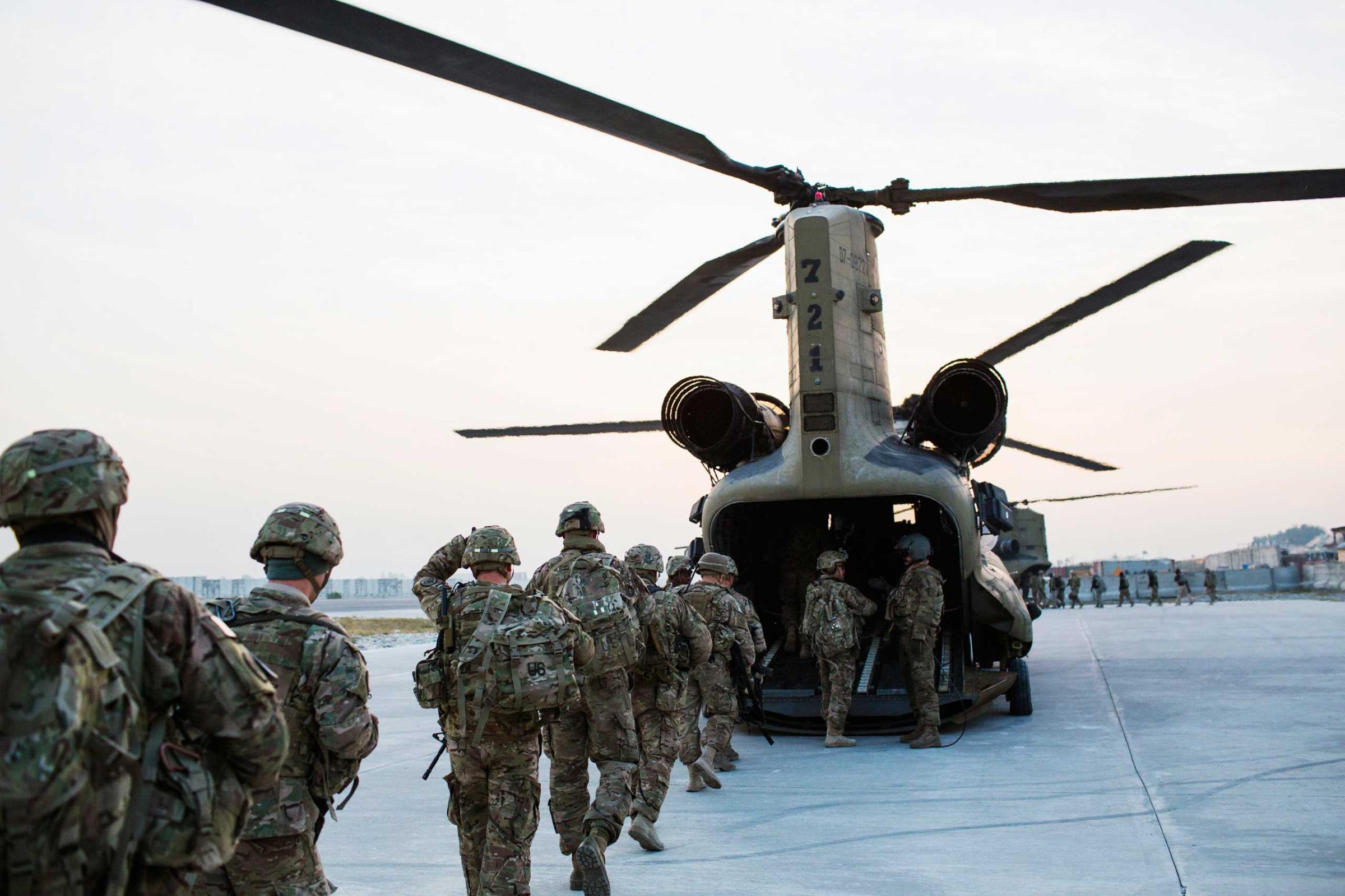
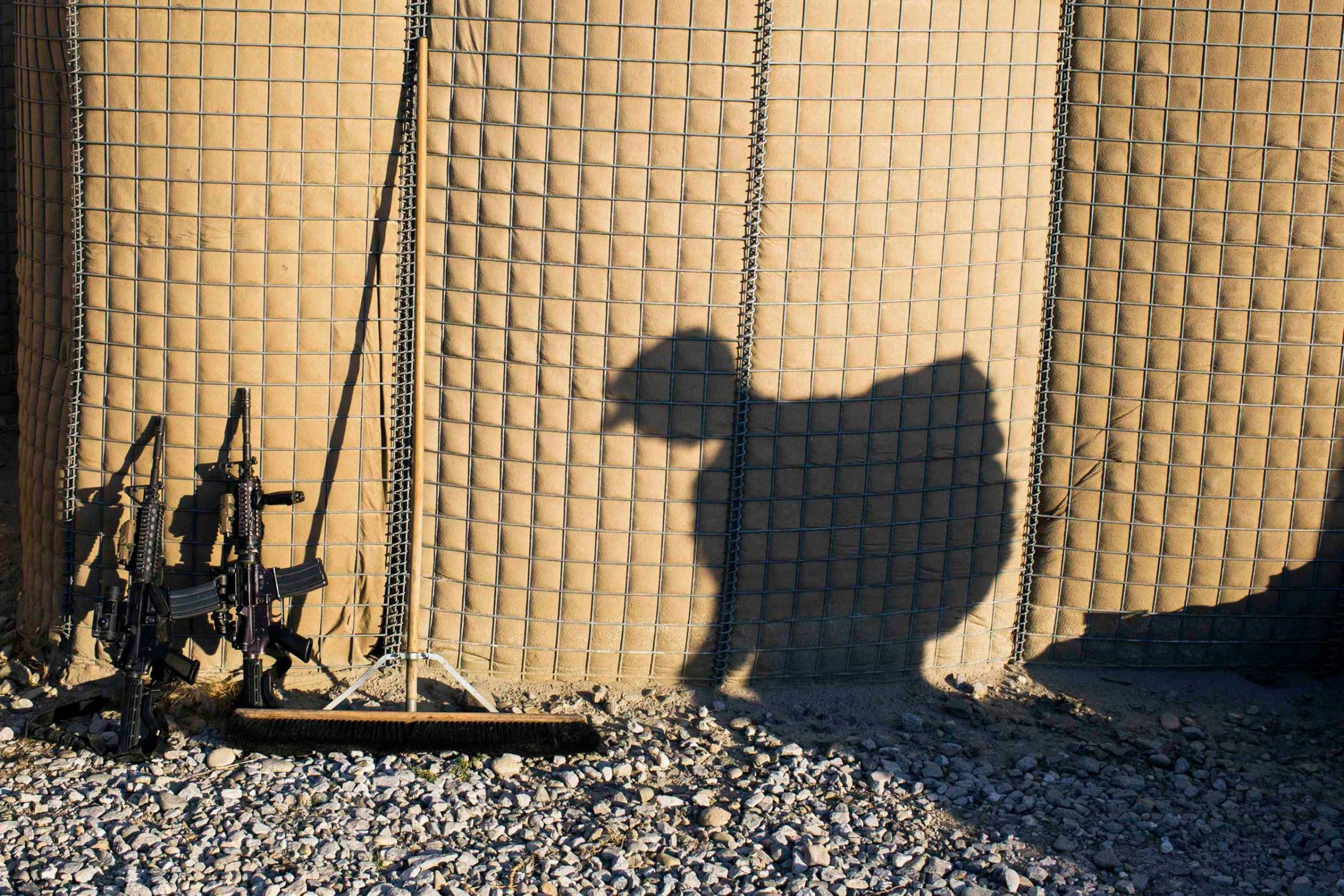
Though Taya’s perspective humanized the story, she also put pressure on Hall to get it right. “A running theme for this movie for me was people — SEALs, Chris’ friends — looking me right in the eye and saying, ‘F— it up, and I’ll kill you.'”
It was because of Kyle’s family that Hall and Eastwood ultimately decided not to show Kyle’s death in the film. It’s a topic that gets Hall worked up. “I don’t remember s— from when I was six years old. I’ve spent time with their son, and that kid is going to grow up without a dad,” he says. “I don’t want to be the guy who made some f—ing movie where I show his dad getting his f—ing head blown off. I made a promise to Taya that I was going to tell her husband’s story right.”
Turning a real story into an Oscar-worthy picture without facing some backlash — personal or political — is no easy feat, as demonstrated by some recent scandals: the real-life Mark Schulz’s enraged response to Foxcatcher, and the criticism of the portrayal of President Lyndon Johnson in Selma. And though Hall did eventually earn Taya’s approval — she cried and told him Cooper had brought her husband back to life — he still bristles under the implication that Chris Kyle’s story is one that glorifies war. “Chris and those other guys, they didn’t pick the war. If they did, they would have picked somewhere else because Iraq is a s—hole—it’s 140 degrees and just dirt,” he says. “The movie isn’t about whether we should have been in Iraq or not. It’s about how war is human.”
Hall won’t acknowledge a political agenda, except to emphatically assert that our government needs to do a better job of taking care of our veterans. “A lot of these guys come home — they have no work, no place to live. When Chris came back, he was drinking his face off, his marriage was going through some issues. It took him years to get back, spiritually, to the guy he was before the war,” says Hall. “I hope every time a politician decides to send us to war, maybe they saw this movie and know the cost of it.”
Read next: The True Story Behind ‘American Sniper’
More Must-Reads from TIME
- Donald Trump Is TIME's 2024 Person of the Year
- TIME’s Top 10 Photos of 2024
- Why Gen Z Is Drinking Less
- The Best Movies About Cooking
- Why Is Anxiety Worse at Night?
- A Head-to-Toe Guide to Treating Dry Skin
- Why Street Cats Are Taking Over Urban Neighborhoods
- Column: Jimmy Carter’s Global Legacy Was Moral Clarity
Write to Eliana Dockterman at eliana.dockterman@time.com